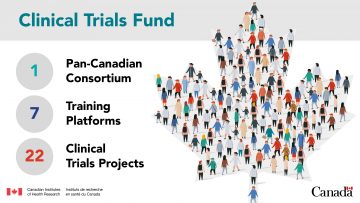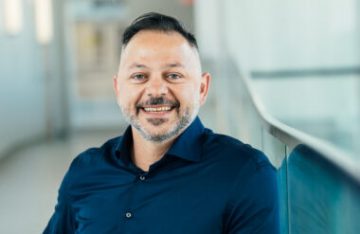Translational Medicine Rounds – 6 February 2023
Tips and tricks for Early Career Researchers applying to interdisciplinary grants and seeking collaborations

Speaker: Juzer Kakal
Recording: Video (password: zAVM?0=N) & Slides
Summary: This talk will speak about the funding landscape and resources available to Early Career Researchers (ECRS) to apply for grant funding. The discussion will touch on how to cultivate collaborations and participate in interdisciplinary grant applications; meaningfully addressing questions pertaining to EDI and sex/gender considerations in your proposals; and resources available to you to help you succeed in preparing funding applications.
Introduction
Inter-disciplinary research projects are an approach to solving research questions that integrates multiple disciplines through collaboration. More and more funding organizations recognize the importance of multi-disciplinary and inter-disciplinary collaborations to solve pressing problems.
The term interdisciplinary will be used here as an inclusive term to encompass multidisciplinary, transdisciplinary, and interdisciplinary, due to the definitions of each term varying by disciplines of research (adapted from CIHR).
Interdisciplinary Grant Resources
Translational Medicine Grant Opportunities
UBC Science STAIR Grants
STAIR grants are designed to initiate new collaborative, interdisciplinary research projects at UBC. Teams of two researchers apply – the collaboration must be interdisciplinary and the researchers must not have worked together in the past.
Successful teams will receive funding to support two graduate students for one year ($20,000 for each student) and a $5,000 research stipend for materials and supplies, shared between the two PIs.
New Frontiers in Research Fund
The New Frontiers in Research Fund (NFRF) supports world-leading interdisciplinary, international, high-risk / high-reward, transformative and rapid-response Canadian-led research. The NFRF has three streams that each support specific goals, and the flexibility to launch special calls:
Exploration: Supports high-risk, high-reward and interdisciplinary research. Two-year grants offered yearly, at $100,000 per year ($125,000 including indirect costs)
Transformation: Supports large-scale, Canadian-led interdisciplinary research projects that address a major challenge with the potential to realize real and lasting change (high-reward). Six-year grants offered every two years, at minimum $2,000,000 per year (including indirect costs) and maximum $4,000,000 per year (including indirect costs)
International: Supports international collaborations and position Canada and Canadian researchers as strategic partners at the international level. Variable grant details.
Special Calls: Aims to mobilize Canadian-led research efforts in support of a more equitable, sustainable and resilient postpandemic reality. It will support a diverse portfolio of projects that directly address one or more of the research priorities outlined in the UN Research Roadmap for COVID-19 Recovery. Variable grant details.
Tri-agency Interdisciplinary Peer Review Committee
The launch of the Tri-agency Interdisciplinary Peer Review Committee is part of the tri-agency response to recommendations made in the final report of the Fundamental Science Review, whose goal is to ensure the agencies have robust mechanisms to review and support interdisciplinary research.
Relevant Competitions:
NIH interdisciplinary funding opportunities
Grant Development Services and Resources
UBC SPARC
Faculty grant support services for major Tri-Agency competitions (Tri-Agency: CIHR, NSERC, SSHRC)
SPARC offers grant development services, such as competition webinars and editorial and criteria reviews of draft application materials, and grant development resources including application templates and successful grant examples. SPARC supports and provides information for programs such as those through CIHR, SSHRC, and NSERC. Explore SPARC’s resources and sample grants here.
In addition to competition-specific services and resources, SPARC also provides topic-specific resources (and sometimes services) in key areas, namely EDI and sex-/gender-based considerations (SBBA), and Data Management Plans.
Testimonial
“All to say that through all the submissions, SPARC help has been incredible and encouraging – especially with the resubmissions. I think I’ve shared with the team before that we end up hating our grants so one of the magics of SPARC is when you send it back after your tender loving care, I always end up falling in love with them all over again.”
-Mary A. De Vera PhD
Associate Professor | Faculty of Pharmaceutical Sciences
Associate Dean Postdoctoral Fellows | Faculty of Graduate and Postdoctoral Studies
Canada Research Chair in Medication Adherence, Utilization, and Outcomes
 Congratulations to Dr. Ryan Flannigan on his recent publication, Human in vitro spermatogenesis as a regenerative therapy — where do we stand?, in Nature Reviews Urology.
Congratulations to Dr. Ryan Flannigan on his recent publication, Human in vitro spermatogenesis as a regenerative therapy — where do we stand?, in Nature Reviews Urology.





